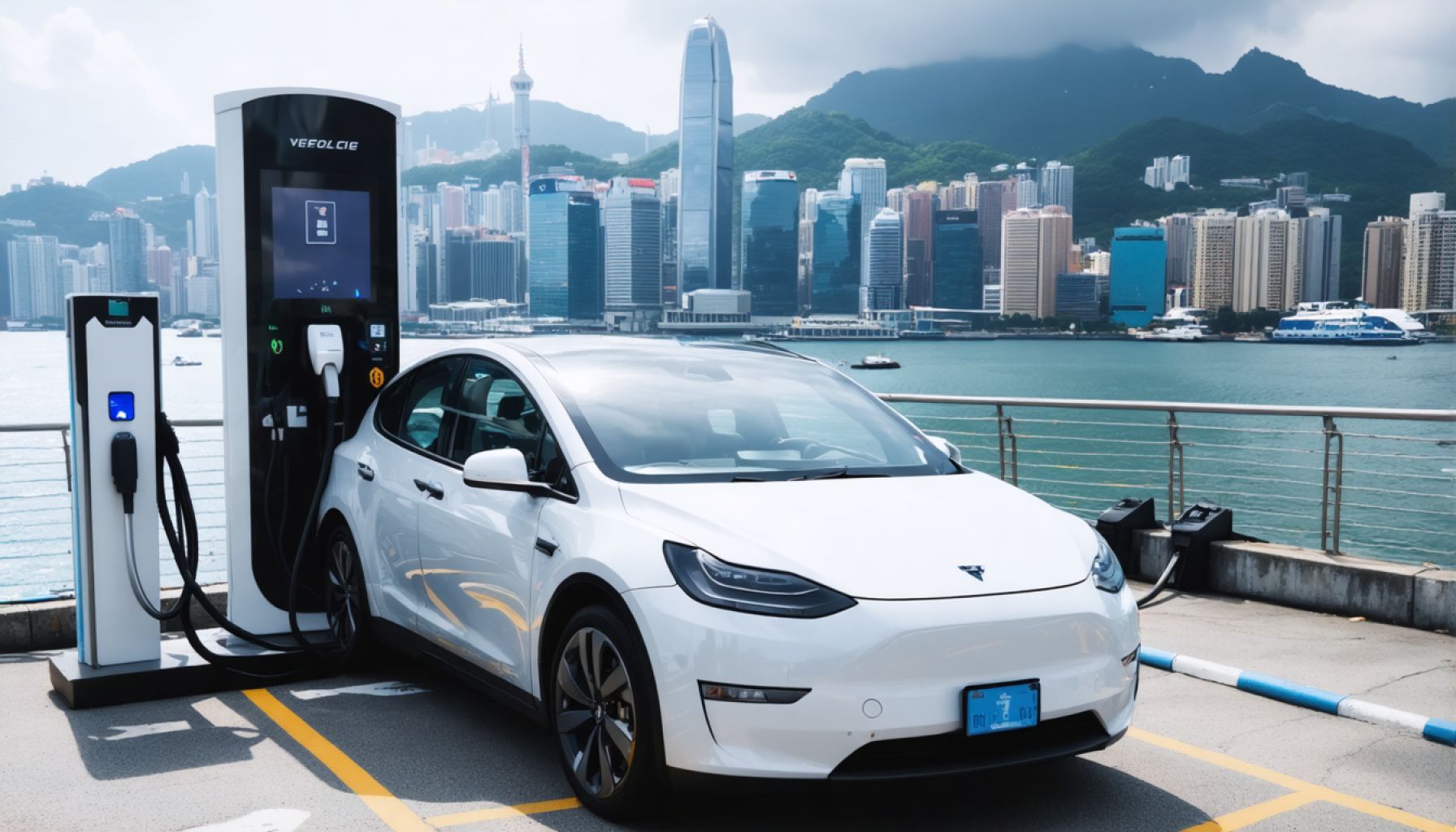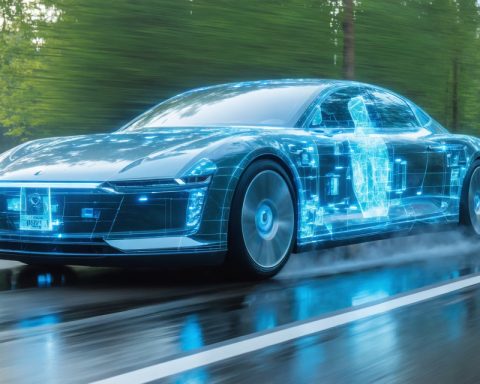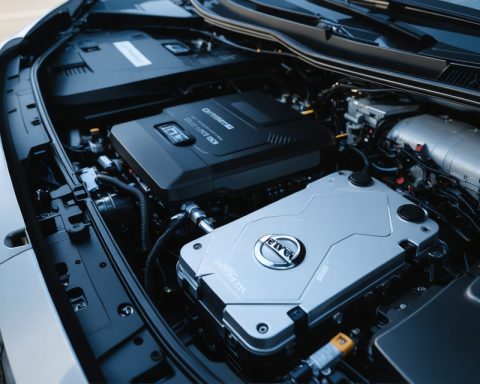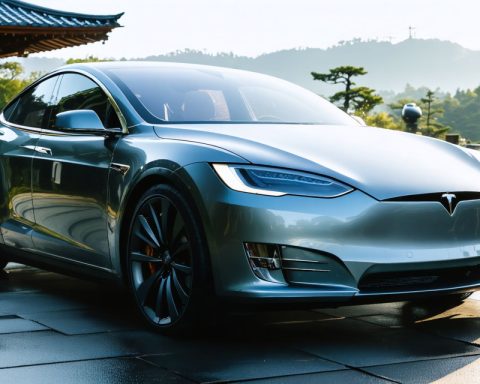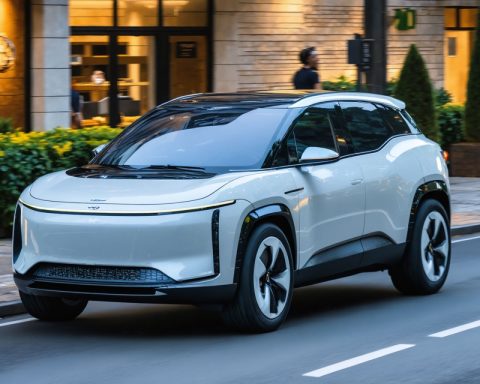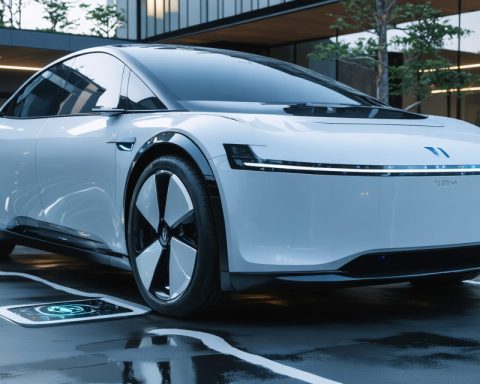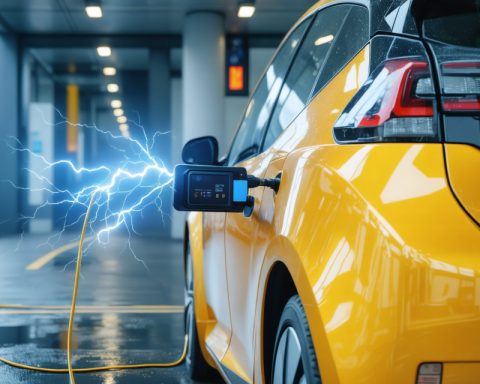- Hong Kong is poised for a transportation revolution driven by advancements in electric vehicle (EV) charging technology.
- BYD, a leader in electric and hybrid vehicles, introduced a groundbreaking charging system with its new Super e-Platform.
- The platform delivers 1 megawatt of peak power, significantly faster than Tesla’s superchargers, addressing “charging anxiety.”
- Drivers can charge for a 400-kilometer range in just five minutes, potentially accelerating EV adoption.
- The excitement led to a 6% surge in BYD’s Hong Kong shares, reflecting confidence in sustainable transit solutions.
- This development aligns with Hong Kong’s ambitions to become a hub for EV innovation and infrastructure.
- The focus is on building an ecosystem that supports efficient charging and battery maintenance for EVs.
- Hong Kong is positioning itself as a leader in the global green movement by supporting cutting-edge EV technologies.
In a world increasingly driven by the imperative to embrace green initiatives, Hong Kong stands on the precipice of a transportation revolution. A wave of excitement surges through its electric vehicle (EV) market, not for a new fleet of futuristic cars, but rather for the rapid advancements in charging technology that promise to redefine their adoption.
The catalyst for this e-mobility evolution is none other than BYD, the global leader in both hybrid and pure electric vehicles. On a transformative March day, the Shenzhen-based automotive powerhouse unveiled a groundbreaking charging system that could set a new standard in the industry. At the heart of this innovation is the company’s new Super e-Platform, a cutting-edge technology running at a peak power of 1 megawatt, outpacing even Tesla’s revered superchargers by doubling their speed.
Imagine this: in just about five minutes, drivers can power up their vehicles to travel an astounding 400 kilometers. This revolutionary leap forward addresses a pervasive hesitation known among EV skeptics—“charging anxiety.” This concern, a significant barrier to the widespread adoption of electric cars, is dented considerably by BYD’s advancements, promising convenience and efficiency that could lure traditional combustion engine enthusiasts into the electric fold.
The impact of BYD’s announcement was immediate and tangible. The automotive giant’s shares in Hong Kong surged over 6 percent, a clear reflection of the optimism buzzing in the financial markets and the confidence in the city’s capacity to pivot towards sustainable transit solutions.
Yet, this development stretches beyond mere corporate gains. It signifies a pivotal shift in Hong Kong’s broader ambitions to nurture a robust green transport sector and to transform itself into a hub for EV innovation. By prioritizing infrastructure to support swift charging and extensive battery health, the city can position itself as a testing ground for the EV technologies that will drive the future.
The message is clear: as Hong Kong embraces the electric age, it’s not just about the vehicles, but the ecosystem supporting them. With organizations like BYD blazing new trails, the path to a sustainable transportation future is becoming not only visionary but viable. Through these technological leaps, Hong Kong is not merely keeping pace but is poised to lead the charge in the global green movement.
The Future of Electric Vehicles: How BYD’s Charging Technology is Transforming Hong Kong
Introduction to Hong Kong’s Charging Revolution
In the rush towards a greener future, Hong Kong is becoming a focal point for electric vehicle (EV) innovation, thanks to sweeping advancements in charging technology, primarily led by industry giant BYD. These developments don’t just focus on creating new electric cars but on redefining how we think about EV charging altogether.
The Game-Changing BYD Super e-Platform
The centerpiece of this transformation is BYD’s Super e-Platform, with a peak power capacity of 1 megawatt. This technology dramatically outpaces competitors like Tesla by doubling their charging speed. A quick five-minute charge can now power an EV to travel an impressive 400 kilometers, effectively addressing and alleviating the “charging anxiety” that has troubled potential EV buyers.
Key Innovations and Benefits
– Reduced Charging Time: BYD’s advancements mean significantly less downtime for charging, making EV use almost as convenient as traditional vehicles.
– Broader Adoption Potential: Faster charging dissipates hesitations about electric vehicles, enticing more individuals to switch from combustion engines.
– Economic Impact: BYD’s announcement not only boosted their share prices but also solidified Hong Kong’s position in the EV market, indicating strong financial and infrastructural support.
Market Forecasts & Industry Trends
– Increased EV Adoption: As fast-charging technology becomes more accessible, we anticipate a rise in EV registrations in Hong Kong. This aligns with global trends where governments incentivize EV adoption to meet climate goals.
– Infrastructure Development: There will likely be increased investment in EV infrastructure, not only to support fast chargers but also to modernize grids to handle the increased electrical loads efficiently.
Real-World Use Cases
– Public Transport: The technology can be scaled to electrify buses and public transport systems, drastically reducing emissions in urban areas.
– Commercial Fleets: Companies with delivery services can maintain continuous operation with minimal downtime for charging.
Challenges and Considerations
– Infrastructure Cost: Developing the necessary charging infrastructure requires substantial investment.
– Grid Capacity: As demand grows, so does the need for grid upgrades to prevent overload and ensure stable energy supply.
– Environmental Impact: While EVs are cleaner, the production and disposal of batteries present ongoing environmental challenges.
Expert Opinions
According to experts, rapid advancements in charging technology will accelerate EV adoption, but the transition must be managed carefully to avoid overwhelming current infrastructure. Collaboration between government, automakers, and energy providers is crucial (Forbes).
Actionable Recommendations
1. Consider Making the Switch: If you’re contemplating transitioning to an EV, now is an opportune time, given the advancements in charging tech.
2. Invest in EV Stocks: With the market poised for growth, strategic investments could be beneficial.
3. Monitor Developments: Stay informed about upcoming technologies and infrastructure projects in your area.
Conclusion: Embracing the Electric Age
As Hong Kong leads the charge towards a sustainable future, embracing these technological innovations can pave the way for broader acceptance and implementation of green transport solutions. The transition is not just about electric cars but about creating an integrated ecosystem that supports sustainable living.
For more information on green transport solutions and sustainable initiatives, visit BYD.
